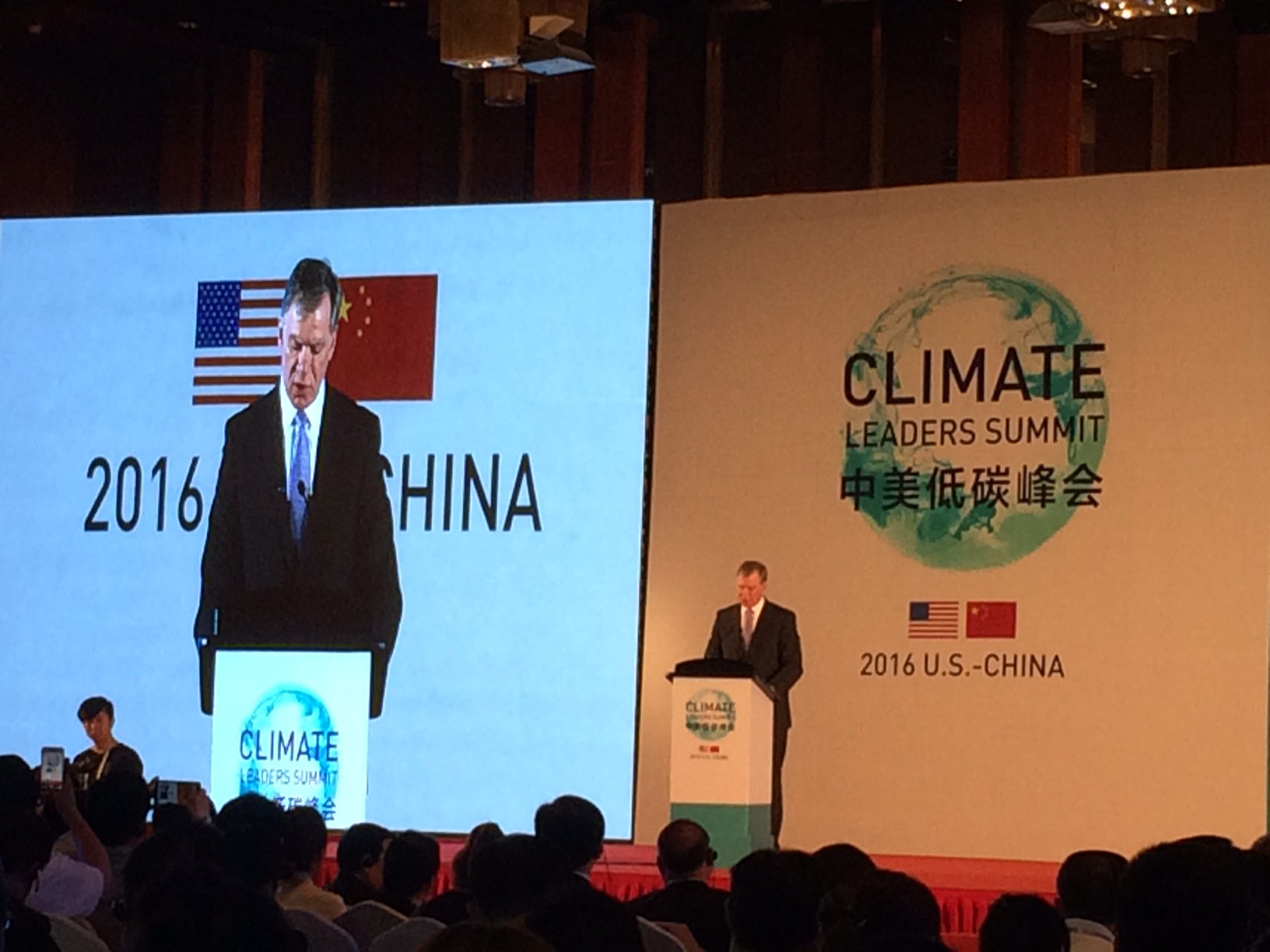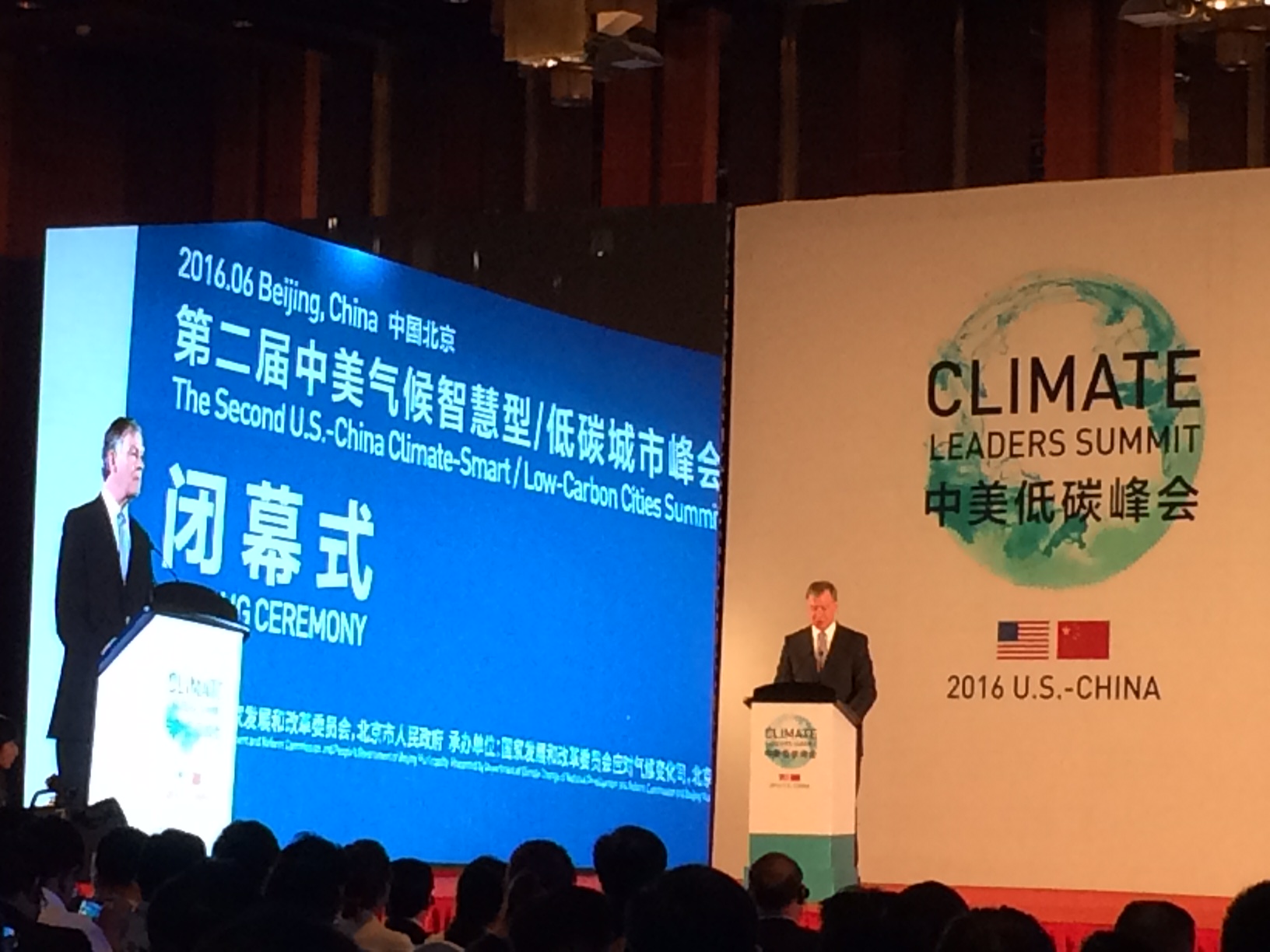Mayors call for profile on river's environmental services
For Immediate Release May 31, 2016
Contact: Jim Gwinner, JGwinner@LS2Group.com, 314-791-2774
Beijing, CHINA (June 7, 2016)—Following global river talks in Paris during COP 21 and in Mexico during the World Assembly of River Basins last week, Mayors of the Mississippi River Cities & Towns Initiative (MRCTI) represented America’s most important waterway at the U.S.- China Climate Leaders Summit presenting on the importance of river valley ecology in capturing carbon. Mayor Chris Coleman of St. Paul, MN and Mayor Roy Buol of Dubuque, IA urged important natural infrastructure provided by river valley be made part of city carbon reduction efforts and called for a profile of the Mississippi River’s environmental services.
“A U.S. River Cities association is playing a role in this Summit because climate impacts are not confined to city or state boundaries, they are multi-regional in scope; and, freshwater ecosystems like the Mississippi River Valley play a valuable role in reducing our greenhouse gas footprint,” said Chris Coleman, Mayor of St. Paul, MN and Co-Chair of MRCTI.
“Our natural infrastructure has carbon and other greenhouse gas reductive properties. A 2013 study by the Smithsonian found that freshwater wetlands, for instance, can absorb up to 32 percent more carbon in greenhouse intensive environments. Forests, marshes, streams, and creek vegetation fed by rivers add to greenhouse gas storage capacity,” explained Roy Buol Mayor of Dubuque, IA and Immediate Past Co-Chair of MRCTI.
The Mayors also shared the MRCTI food and water security agreement they brokered in Paris and added signatories to in Mexico last week during the World Assembly of River Basins. The agreement seeks to protect surface and ground waters to ensure food security and access to drinking water mitigating climate change threats to river basins.
Since China produces food for more than 20 percent of the world’s population and that production is partly sustained by the agriculturally rich three rivers plain, it is important China be included in the effort to protect the world’s food-producing river basins from climate change.
River basins produce the majority of the world’s food supply. Among these, the Mississippi River Basin ranks first in production capacity and China is second. MRCTI has secured signatures to the agreement from river basin organizations comprised of more than 70 nations.
MRCTI is an effort to bring national attention back to the Mississippi River—America’s most critical natural asset—and spearhead a new level of regional cooperation to make it more sustainable. As the ecological linchpin to the 31-state Mississippi River Basin, the River is responsible for creating $400 billion worth of U.S. GDP; providing drinking water for more than 20 million; transporting 40 percent of our nation’s agricultural output; and directly supporting 1.3 million jobs and millions more indirectly.
More information is available at www.mrcti.org. Contact: Jim Gwinner JGwinner@LS2Group.com, 314-791-2774.



